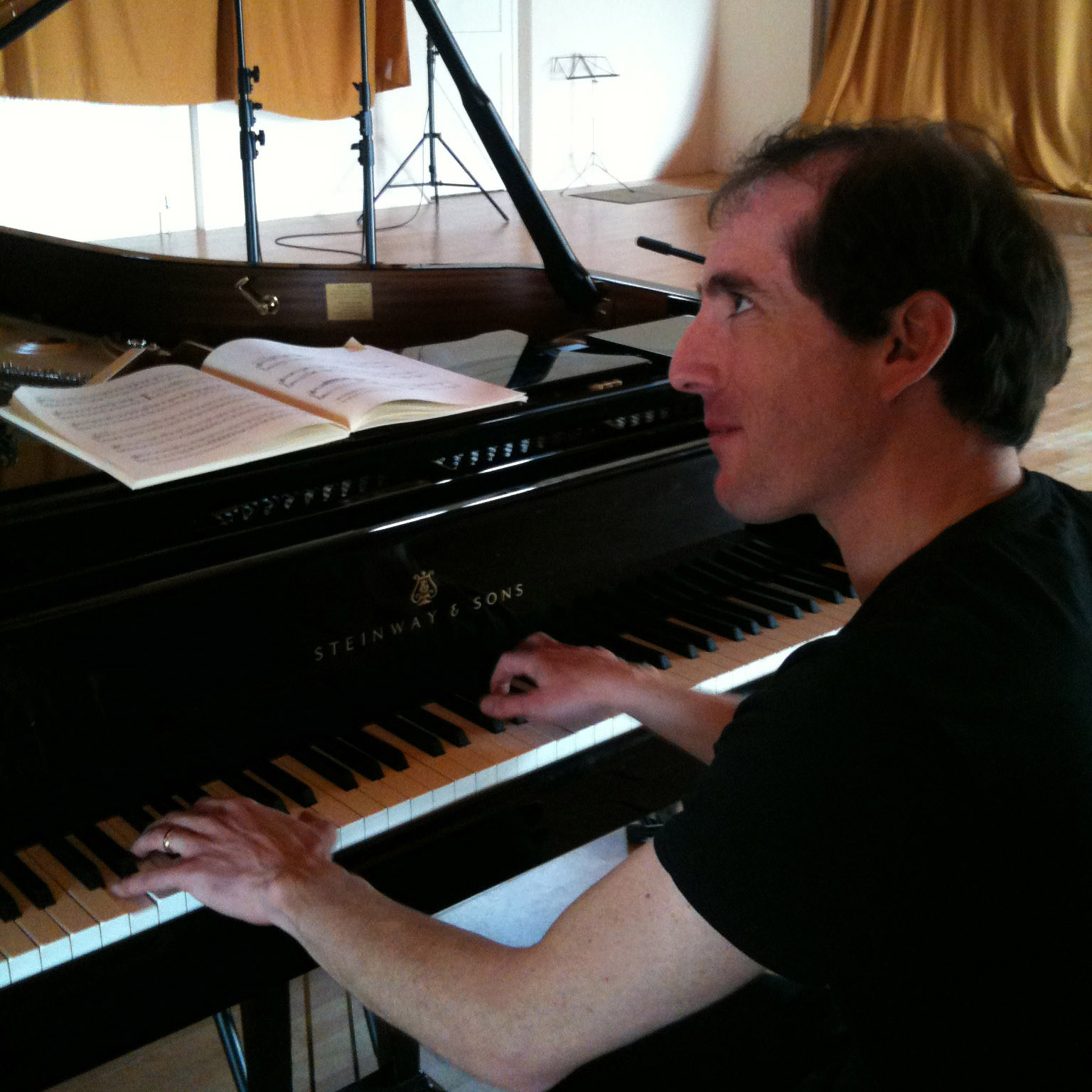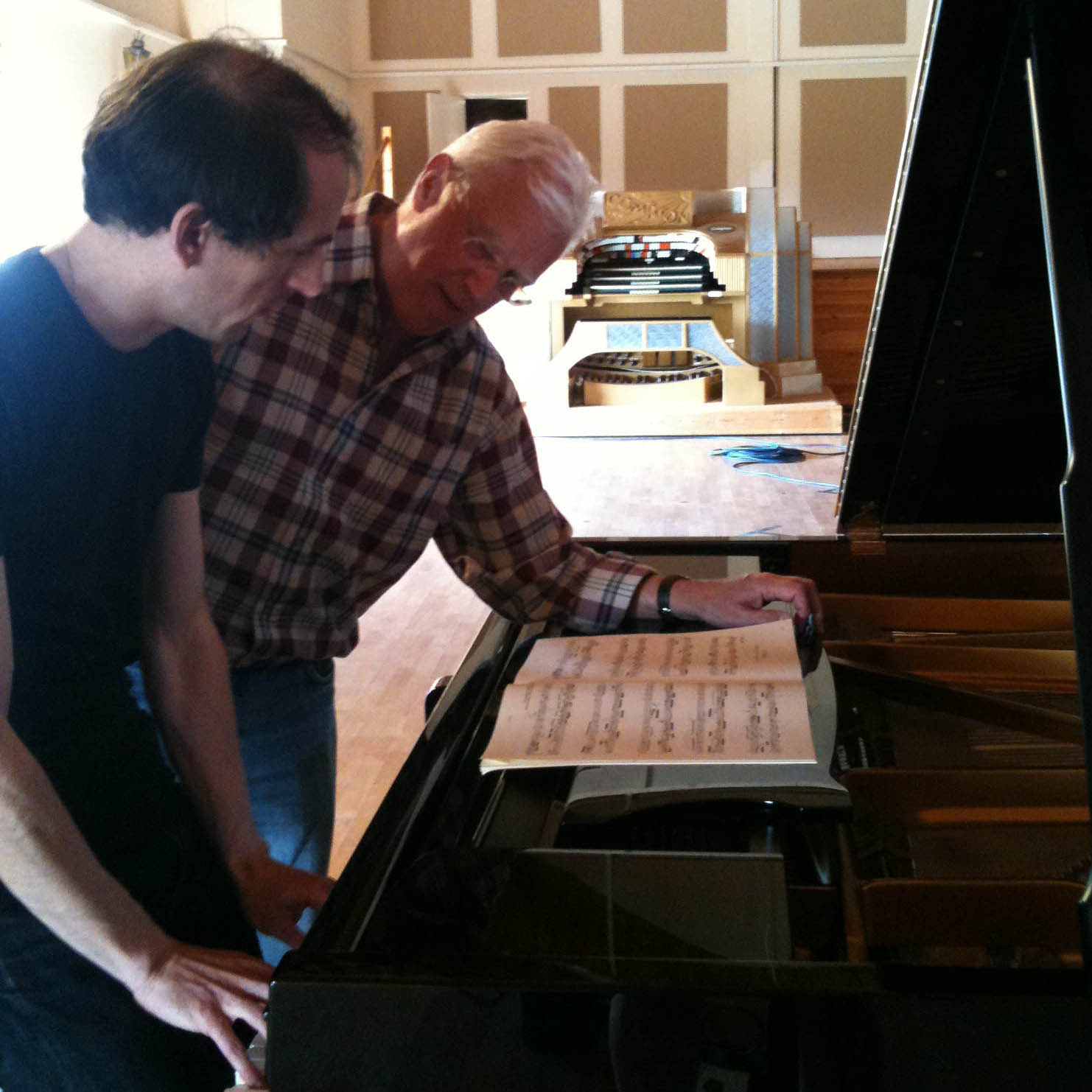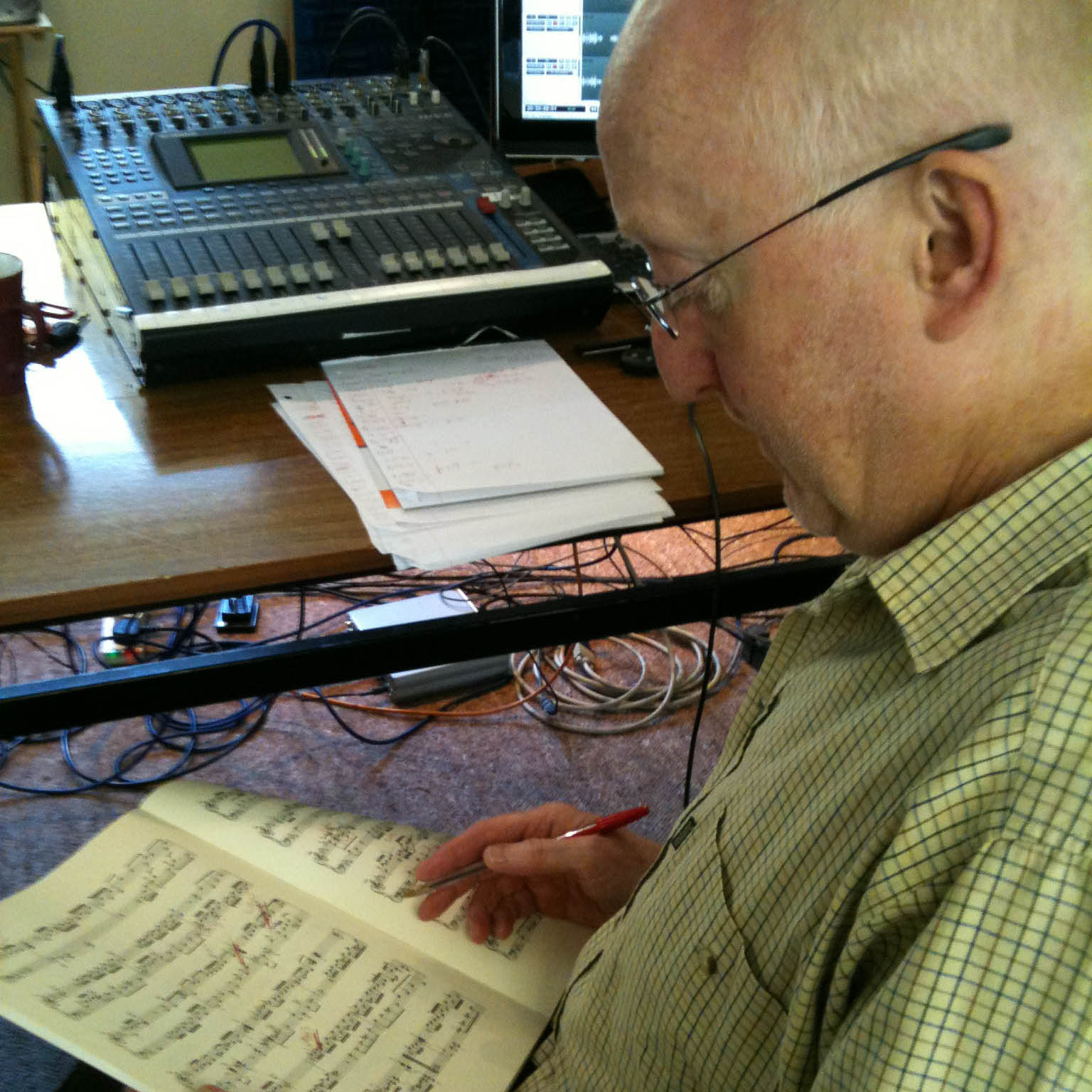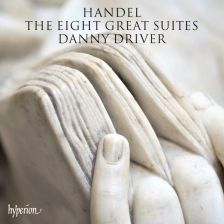Session Report: pianist Danny Driver records Handel’s Eight Great Suites
Jeremy Nicholas
Thursday, May 15, 2014
Jeremy Nicholas joins Danny Driver at Potton Hall

‘Can you hear the nightingales?’ It’s not every day you are greeted at a recording session with such exquisite birdsong, but not every recording venue is in such an idyllic rural setting. ‘Listen, you can hear them talking to each other.’ Jeremy Hayes, the ebullient, encyclopedic director of Potton Hall, savours this delicate tree-top treat every April. It’s midday in peaceful, isolated Suffolk. The gorse is its deep, rich yellow and the much-delayed Spring is almost sprung.

No cuckoo, as yet, to go with the nightingales. A pity. Handel would have approved. Over in the studio, Danny Driver is recording his music. This is the final day of six sessions (three in January, three in April) devoted to the Eight Great Suites and other miscellaneous keyboard pieces.

This is a three-man operation. Driver, in black T-shirt and jeans, makes his way from the vast space of the studio to the listening area where producer Andrew Keener has been busy scribbling his secret codes in red biro into his score. Apparently, he can tell from these indecipherable hieroglyphics which part of which take to use in the final edit. It’s a system that seems to have worked rather successfully for him over the past 20-plus years. Dave Hinnit, the engineer, sits by his side checking levels with a third pair of sharp ears.

Driver has been working on one of the Courante movements. ‘It’s not differentiated enough,’ is his verdict on himself. ‘It’s OK – but do you think the decorations are too much?’ He returns for another take. ‘There’s so much you can do with this music and all its repeats,’ says Keener. ‘Different colours and different decorations. There’s been a lot to talk about them in these sessions and the ones in January.’
Driver comes in again after another shot at the Courante. ‘There’s a lot of “sound”,’ suggests Keener. ‘Yes,’ agrees Driver. ‘Let’s try another approach.’ ‘Yes. Lighter. Airier.’ Another take. Driver cracks it. You can tell within a few seconds he’s got it – and with different decorations that sound improvised. ‘They are,’ admits Driver later. ‘On purpose. Don’t practice everything. Leave the ornaments to the spur of the moment.’ The result is that, as they fly off the score with the freedom of a jazz player, they actually make Keener (and me) laugh with pleasure, so cheekily deft and unexpected is Driver’s execution.
Over lunch, Driver and I share our mutual love of Handel while Keener relaxes with a Libby Purves novel (he’s a huge fan but doesn’t know that by an odd coincidence she lives just two miles from where we are). The Eight Great Suites played on a concert grand are comparative rarities on disc. ‘They are wonderful. Glorious in every way,’ enthuses Driver. ‘One of the great things about them is the sheer variety of styles whether it’s the influences of people like Pachelbel and Froberger or the French and Italian schools - all these were assimilated and understood and used in a way that was completely Handel’s own. The way he borrows from himself – the last movement of the F sharp minor Suite is exactly the same as "Happy we!" from Acis and Galatea. That bears witness to the way the keyboard music is connected to the opera world. Of course he also had this extraordinary reputation as an improviser and keyboard virtuoso. Some people say well where’s the evidence of his virtuosity? There are clues in the music. Let me tell you the Harmonious Blacksmith variations in the Fifth Suite are very, very tricky. There’s nothing easy about them at all. They are quite awkward to play and very technically demanding. The Gigue I recorded this morning is in 24/16 which must have been quite difficult at a fairly fast tempo on the harpsichord because of the lack of repetition. He wrote so much opera and oratorio and so little instrumental music by comparison that these Suites give us a special, privileged window on to what must have been a very important aspect of him as a musician.’
Refreshed after the break, Driver sets down the G major Chaconne, a generous addition to the Great Suites. Three takes later, Keener leans into the mike. ‘You’ll have to persuade me very strongly to let you record that again. Inspired. Come and listen.’ Driver does so. ‘Mmm. Nice shape but there are a few restrikes I’m not sure I care about.’
Was there ever an artist who was completely satisfied with anything he or she did? I doubt it.
Details
Artist: Danny Driver (piano)
Work: Handel's Eight Great Suites
Venue: Potton Hall, Suffolk
Dates: 29 – 31 January & 22 April – 24 April 2013
Engineer: Dave Hinnit
Producer: Andrew Keener
Read the Gramophone Review of Handel's The Eight Great Suites











